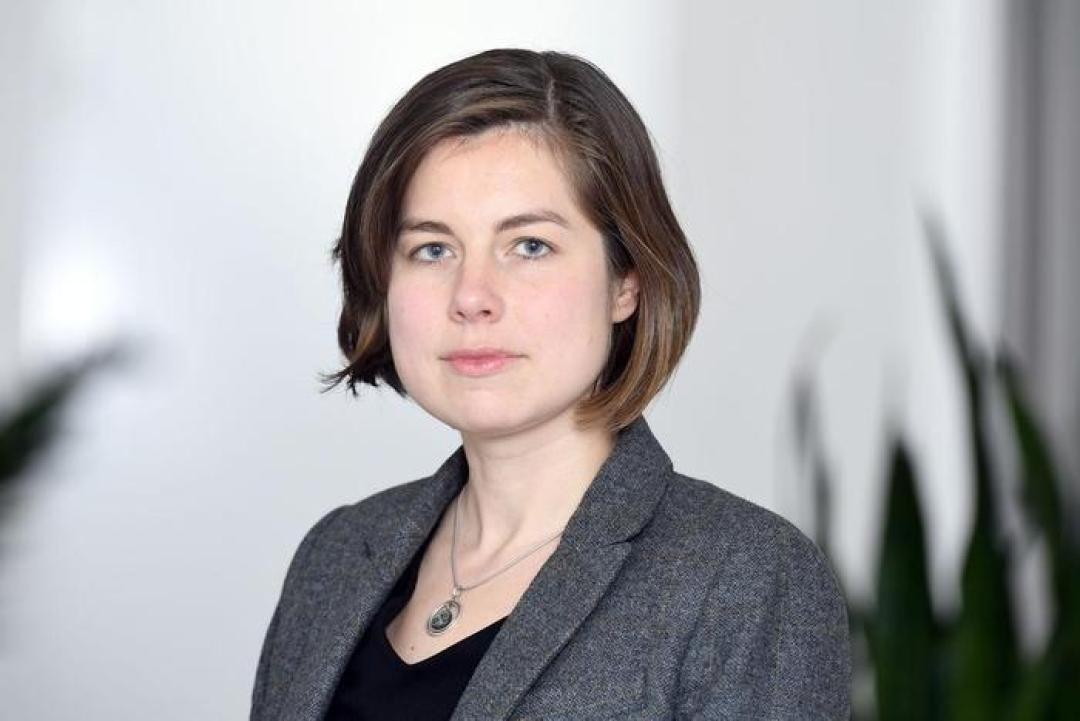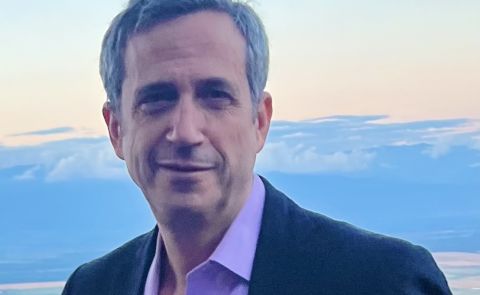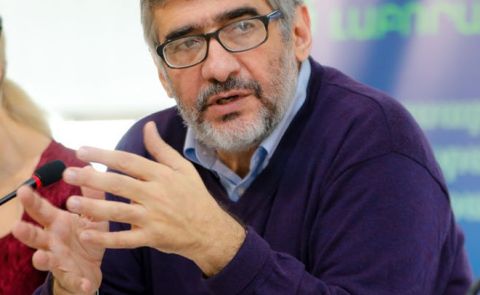
Dr. Nadja Douglas on the pandemic, conflicts and crises in the South Caucasus

Dr. Nadja Douglas is a researcher at the Center for East European and International Studies in Berlin. She works on security issues and state-society relations in the post-Soviet space.
- Health and economic challenges have been a stress test for the governments of the South Caucasus. How have Armenia, Georgia and Azerbaijan passed this test so far?
Very differently. While Georgia has been praised by the WHO and other Western organizations for their exemplary handling of the Covid 19 crisis and timely anti-crisis measures, in Armenia and Azerbaijan the worst-case scenarios were only prevented through rigorous lockdowns and draconian enforcement by police and law enforcement agencies.
In Armenia, the number of infections rose more rapidly again after the lockdown was relaxed (despite the fact that no relaxation was in sight at this point in time). In terms of population, it has the highest infection and death rates of all three countries, though there has also been a slight increase again in the two neighboring countries recently. The Armenian health system is now clearly at the limit and its poor state and the backlog of reforms have become apparent in the crisis. The fact that Prime Minister Nikol Pashinyan was infected himself and has been massively criticized by the opposition in recent weeks, who accused him of failing to fight the pandemic, also proved to be bad for the crisis management image. There has been an uneasy balance between criticism of government work and the fight against corruption on the one side, and the exploitation of the crisis for political goals and selective justice on the other.
As far as the long-term economic consequences are concerned, it is too early to make any concrete statements. All three countries will suffer damage, although it is likely that Armenia will suffer the most from the long-term consequences. It does not have the resources and financial cushion of Azerbaijan and it is not yet as advanced in the reform process as Georgia. Consequently, it will not be able to carry out many projects to stimulate the economy and promote investments that started out optimistically at the beginning of the year. The decline in remittances from abroad, which make up 10-11% of GDP in Georgia and Armenia, will also be felt.
State support for the socially disadvantaged and for companies (especially SMEs) in Georgia and Armenia deserves a positive mention. In these two countries, civil society and government have worked closely together during the crisis and are still doing so. It would be desirable to maintain this open attitude beyond the crisis.
Interviewed by Philip Röhrs-Weist
- The EU will continue to deal with economic and political challenges caused by the pandemic for a long time. How could the crisis affect EU activities in the South Caucasus?
In the region, people are now looking even more expectantly towards the EU. During the crisis, the EU Commission, along with the IMF, the World Bank, the Asian Development Bank and others, was very present with its emergency aid package for the countries of the Eastern Partnership. Direct aid that meets immediate needs and generous macro-financial aid for medium- to long-term socio-economic recovery were granted in a way that was relatively unbureaucratic for EU standards. This was perceived positively. But that also means that the South Caucasus will continue to rely on the EU in future crises. Such expectations can quickly turn into disappointment.
- How is the trilateral relationship between Moscow-Yerevan-Baku developing, do you see a shift in the balance here? Despite the repeated appeals by the Armenian government, Gazprom has not revised gas prices - is this an economic or a political question?
This relationship has always been tense but it is currently undergoing a real stress test. It is now almost routine that the situation at the contact line (LoC) is more tense in spring (the anniversaries of the occupation of the city of Schuscha and the district of Lachin are particularly important here). This time mutual accusations were made on using mortars along or near the LoC. The recent military exercises in Azerbaijan, including in Nakhichevan, can also be understood as a reaction to a series of previous events or as an upset about them. The elections in Nagorno-Karabakh in March/April and the recognition of the results by Pashinyan are worth mentioning. In addition, Pashinyan's rigorous refusal to negotiate a step-by-step solution (phased approach) to the Nagorno-Karabakh conflict was met with outrage in Baku. Russian Foreign Minister Lavrov had just spoken of a document that would bring this option back into the negotiations in April. Furthermore, Pashinyan tried to change the negotiation format by repeatedly calling for the defacto regime in Nagorno-Karabakh to be brought back to the negotiating table in 2019. It has to be said that the situation is not exactly easy for the Prime Minister, who is constantly balancing his actions and words so as not to scare the elites in Nagorno-Karabakh, who are dangerous to him in terms of domestic politics, or to jeopardize the peace process as a whole.
Overall, these developments represent a renewed departure from both sides on the peace process. At the beginning of 2020, a number of personal talks with the OSCE Minsk Group were held in Geneva between the two foreign ministries. Overall, Azerbaijan has now escalated its rhetoric (and probably also its intentions) and is more proactive in seeking Russian support.
From the Russian point of view, the question of the gas price is probably more of an economic one, since the Kremlin is assuming that gas prices will remain permanently lowered and fears of a domino effect in the region persist. If Russia lowers its prices for Armenia, Belarus and Kyrgyzstan might follow. In view of the fact that Armenia's economy has developed positively in the past year, Russia cannot make any further concessions being confronted with its own recession. On the other hand, the defacto existing monopoly over gas supplies is of course exploited and Armenia is kept in a dependency relationship.
In addition, Moscow is annoyed by the ongoing investigations into the South Caucasian railway company, which is wholly owned by the Russian State Railway Company. Another line of conflict appears to lie in the arrest and trial of former President Robert Kocharian, who continues to enjoy good relations with the Kremlin.
- Two years have passed since the Velvet Revolution in Armenia. Have the international and Armenian expectations of the new government been met?
The post-revolutionary phase is always a very difficult one. The internal and external expectations were, and still are, huge. The government continues to enjoy great confidence among the general public, at least according to opinion polls before the Corona crisis. However, many experts say that the window of opportunity to implement important reforms is slowly starting to close. The government has initiated many very positive developments, above all to improve the socio-economic situation in the country and to combat extreme poverty (increases in pensions, increased minimum wages, reduction in income taxes). Another very important aspect is the successful fight against corruption, especially in the health and education system and partly in law enforcement. It was also central to detach business from politics, to deprive privileges and the access to resources of the old elites and oligarchs, who enriched themselves for decades at the expense of the state. Other areas such as the judicial reforms and the reforms of the security sector have not yet been successfully initiated or have been left entirely behind. In the meantime, the government has also made numerous enemies, not only in the ranks of the old regime, but also in parts of the economy, among media professionals and environmentalists. Crisis management during the corona pandemic and allegations of selective justice against old opponents of Pashinyan are other issues that put the government under a lot of criticism.
- Despite the Corona epidemic and the guarantees of high-ranking politicians, the Armenian ex-president was initially not released under restrictions. Is selective justice being used against him, similar to that used against Tymoshenko in Ukraine? How does the case affect Armenian-Russian relations?
In the meantime, Kotscharjan was released on bail. The investigation against him continues and the verdict in the trial has to be awaited. However, it would not be beneficial if the whole thing appeared to be a show trial. The fact that the case affects Armenian-Russian relations can be deducted from the fact that Russian representatives have adopted Kocharyan’s own interpretation and speak of a “political vendetta”.
- What political actors do you see as a real alternative to the current government in Armenia?
The government has only been in office for two years and still has a huge mountain of tasks ahead of it, so it would be premature to talk about alternatives. The Armenians will have to evaluate the work of the current government through the next election.
- Do you see any significant risks for an escalation in the Nagorno-Karabakh conflict similar to the clash in 2016?
In fact, the situation in the region is extremely tense again. As previously described, the rhetoric on both sides has also become more aggressive. The increased military budgets and arms spending in both Azerbaijan and Armenia also speak for themselves (according to SIPRI, both countries are among the top 10 countries with the largest defense spending). So it is not unrealistic that there will be a military confrontation again.
- How do you assess the development regarding the constitutional court in Armenia? How do you expect the international response to be?
The current situation seems to be worsening and is taking on the features of a constitutional crisis. It became clear that the controversy surrounding the constitutional court is the Achilles heel of the current government and will continue to affect democratic developments and the rule of law in the country. The changes to the constitutional amendments that were passed by Parliament on June 22, which include the dismissal of judges who have been in office for more than 12 years, as well as the transfer of the presidency of the court to a new successor, are problematic for several reasons. Ultimately, the independence of the judiciary is at risk. It is also regrettable that the National Assembly or the ruling majority respectively did not take into account the recent recommendations of the Venice Commission to introduce a transition phase. Proposals made in 2019 to subject judges to an independent vetting process (in the sense of a transitional justice) should have completed the "Velvet Revolution", but these have not yet taken off properly. The subject of judicial reform will remain a weak spot. I think the international response will mostly (at least regarding the Council of Europe) be based on the recommendations of the Venice Commission.
See Also


Peace or Capitulation? Shahverdyan on Armenia-Azerbaijan Agreement and the Nagorno-Karabakh Crisis

Ali Mousavi Khalkhali: Iran Will Avoid Conflict in the Caucasus

Aram Suren Hamparyan: Let’s Not End Up With Less Land and Less Peace

Lincoln Mitchell: The Caucasus in the Trump Era

